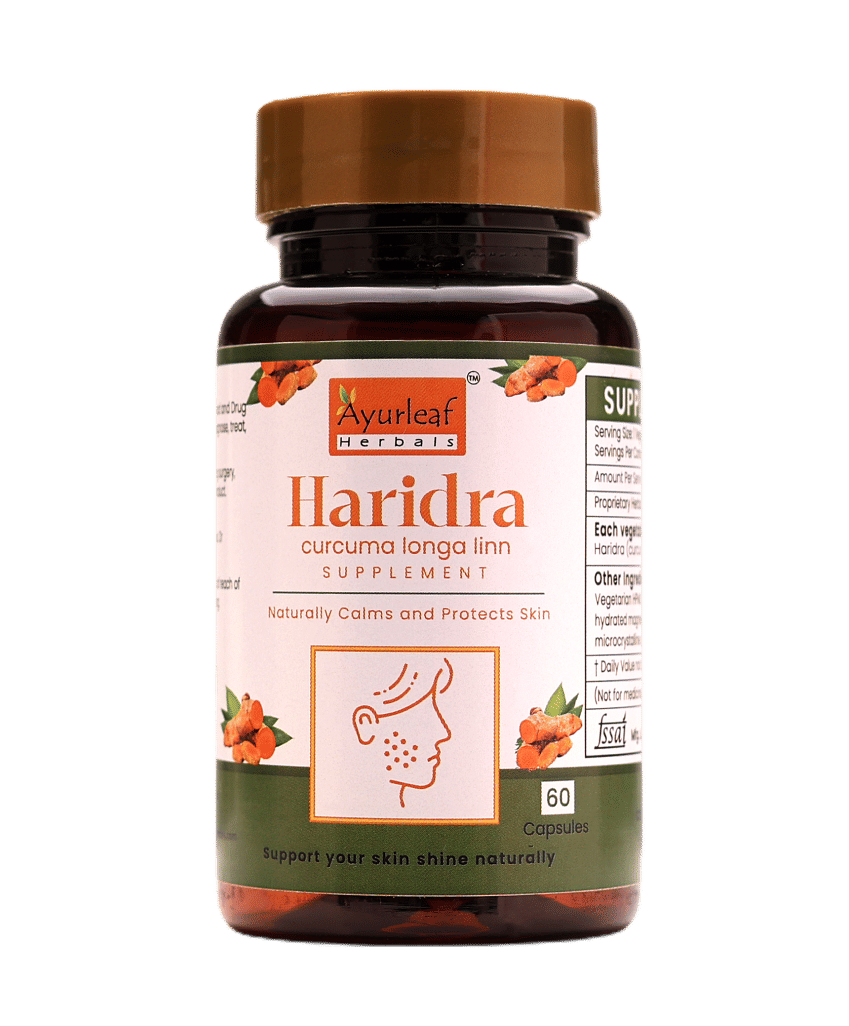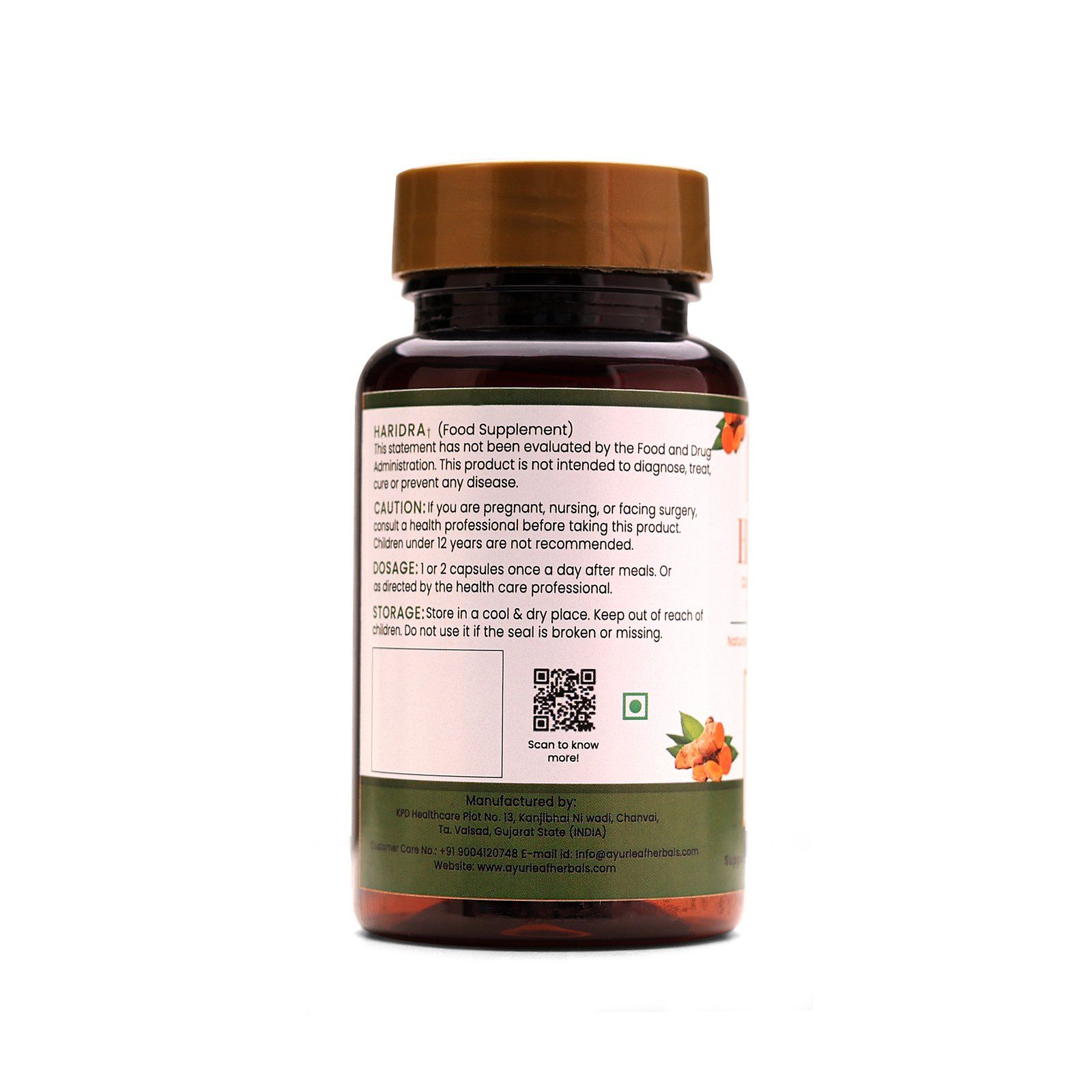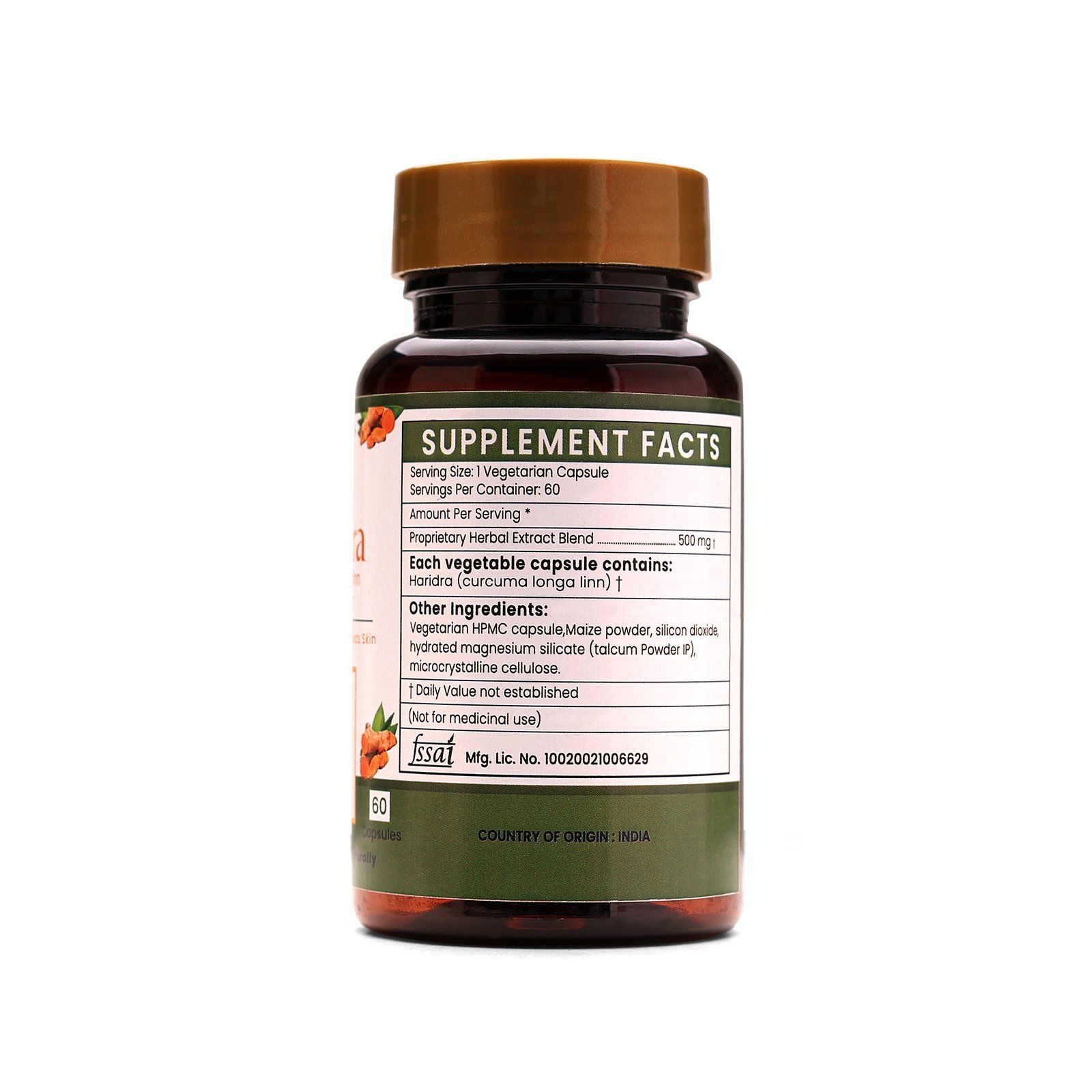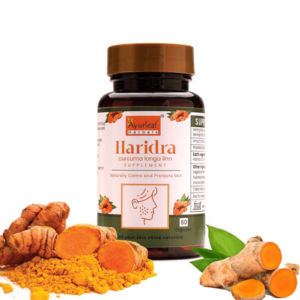Haridra Extract Blended Capsules 500mg | 60 Capsules Vegan Pack
Natural Anti-inflammatory | Support Antioxidant | Skin Health.
-
Buy 2, Get Additional 10% Discount OFF!
Use Code AYURLEAF10 at checkout. -
Buy 3, Get Additional 15% Discount OFF!
Use Code AYURLEAF15 at checkout. -
Get Additional 10% OFF on your first order!
Use Code AYUR1001 at checkout.
100% Genuine Products
Free Delivery
Easy Return Policy
Haridra (curcuma longa linn)
Haridra (Curcuma longa Linn) supports allergic and antioxidant health. Haridra, also known as turmeric, has been historically recognized in Ayurvedic practice for its powerful bioactive compound, curcumin. Curcumin supports the body’s natural response to allergens and helps maintain healthy immune function. Additionally, it acts as a potent antioxidant, neutralizing free radicals in the body, thereby supporting cellular health and overall well-being.
Curcuma longa, commonly known as turmeric or “Haridra” in Ayurveda, is a plant that belongs to the ginger family. It is native to India and Southeast Asia and has been used for centuries in traditional medicine and cooking. Turmeric is known for its bright yellow color and warm, bitter taste, and is a staple ingredient in curry powders and mustards.
Botanical Description: Curcuma longa is a perennial herb that grows up to about three feet tall. It has long, lance-shaped leaves and bears yellow flowers with tuberous rhizomes. The rhizomes are the part of the plant that is used for its medicinal properties and are harvested, dried, and ground into a powder.
Traditional Uses: Turmeric has been used in Ayurveda, Traditional Chinese Medicine, and other traditional medicine systems for its potential health benefits. It is used to support digestion, promote liver health, and as a general tonic to improve health and well-being. Turmeric is also used topically to support skin health and as a natural dye.
Phytochemistry: Turmeric contains several bioactive compounds, the most notable of which is curcumin. Curcumin is believed to be the primary active compound in turmeric and is responsible for many of its health benefits. Turmeric also contains other compounds, such as turmerones and curcuminoids, which may contribute to its medicinal properties.
Health Benefits: Turmeric is believed to offer several health benefits, although scientific evidence is limited. Some of the potential benefits attributed to turmeric include:
- Anti-inflammatory Properties: Curcumin is believed to have potent anti-inflammatory effects, which may help reduce inflammation in the body and alleviate symptoms of inflammatory conditions such as arthritis.
- Antioxidant Activity: Turmeric contains antioxidants that help protect the body from oxidative stress and damage caused by free radicals.
- Digestive Health: Turmeric is used to support digestion and relieve gastrointestinal issues such as indigestion and bloating. It is believed to stimulate the production of bile, which aids in the digestion of fats.
- Liver Health: Turmeric is believed to support liver health and may help protect the liver from damage caused by toxins and free radicals.
- Skin Health: Turmeric is used topically to support skin health and to promote wound healing. It is believed to have anti-inflammatory and antimicrobial properties that benefit the skin.
Preparation and Dosage: Turmeric is available in various forms, including powder, capsules, and extracts. The recommended dosage can vary depending on the specific preparation and intended use. It is advisable to consult with a healthcare provider or an Ayurvedic practitioner for guidance on the appropriate dosage for your specific health goals.
Safety Considerations: Turmeric is generally considered safe for most people when consumed in moderate amounts. However, high doses or long-term use may cause gastrointestinal issues in some individuals. Turmeric may also interact with certain medications, so it’s important to consult with a healthcare provider before using turmeric as a supplement.
In conclusion, Curcuma longa, or turmeric, is a versatile herb with a long history of use in traditional medicine and cooking. While it is believed to offer several health benefits, more research is needed to fully understand its effects and mechanisms of action.
How to Use
- Take one capsule twice a day
- 30 Min after breakfast & 30 Min after dinner
- For better results take at least 3 Months
Ayurvedic medicine for skin allergy, rejuvenate memory, hair Bhumi Amla, Treats skin diseases, Digestion, Treats skin diseases, healthy heart. Treats skin diseases.
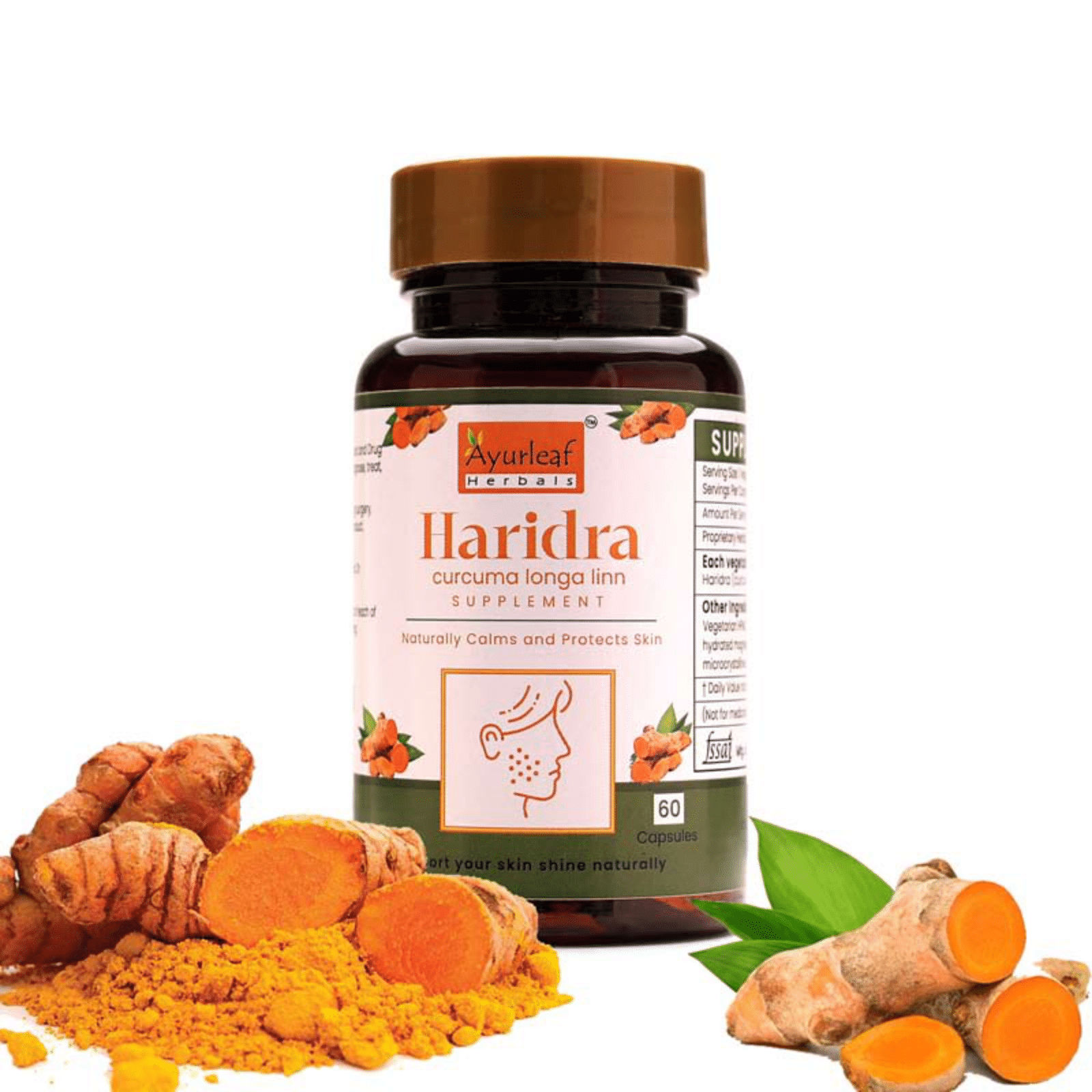 Haridra Extract Blended Capsules 500mg | 60 Capsules Vegan Pack
Haridra Extract Blended Capsules 500mg | 60 Capsules Vegan Pack
| 5 star | 0% | |
| 4 star | 0% | |
| 3 star | 0% | |
| 2 star | 0% | |
| 1 star | 0% |
Sorry, no reviews match your current selections

